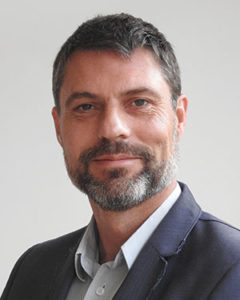Graça Machel is President of the Foundation for Community Development, the UN Secretary General’s Sustainable Development Goals Advocate. She is a renowned international advocate for women’s and children’s rights and has been a social and political activist over many decades. She is a former freedom fighter and was the first Education Minister of Mozambique. Her contributions to the Africa Progress Panel, the United Nations Secretary-General’s Millennium Development Goals Advocacy Group, the High-Level Panel on Post 2015 Development Agenda, and now as Member of the UN Secretary-General’s Sustainable Development Goals Advocacy Group have been widely appreciated. She is a member of The Elders, Girls Not Brides, Board Chair of the Partnership for Maternal, Newborn & Child Health, Ambassador for Every Woman Every Child, President of SOAS, University of London, Chancellor of the University of Cape Town, Board Chair of the African Centre for the Constructive Resolution of Disputes, President of the Foundation for Community Development, founder of the Zizile Institute for Child Development. As Founder of the Graça Machel Trust, she has focused more recently on advocating for women’s economic and financial empowerment, education for all, an end to child marriage, food security and nutrition, and promoting democracy and good governance.

Carsten de Dreu is Professor of Psychology at Leiden University and is affiliated with the Center for Experimental Economics and Political Decision Making at the University of Amsterdam. He is a fellow of the Royal Netherlands Academy of Sciences, and former president of the European Association of Social Psychology. He trained over 30 PhD students and 10 postdoctoral fellows, many of whom pursued successful academic careers. With them, and others, he published over 200 research articles and 50 book chapters on the neurobiological and psychological underpinnings of human cooperation and conflict, ethnocentrism, intergroup prejudice and discrimination, and creative problem solving as a means to negotiate agreement. He has published several books, including “Conflict in Organizations” (Lawrence Erlbaum, 2008; with Michele Gelfand), and “Social Conflict within and Between Groups” (Taylor & Francis, 2014).
His Honour, Dr. Ponatshego H.K. Kedikilwe, was appointed Vice President of the Republic of Botswana on 1 August 2012. He is a graduate of Syracuse University in New York. He has served as a senior civil servant in the ministries of Finance and Development Planning, Works and Communications and headed the Department of Public Service Management. In addition, he has served as Minister for Presidential Affairs and Public Administration, Commerce and Industry, Finance and Development Planning, Education and Minerals, Energy and Water Resources. He has served as Chairman of the University of Botswana Council and was Member of the Monetary Preparatory Commission which recommended the establishment of the Bank of Botswana and use of the Pula currency in 1976. He has served in various key parastatal and private organisations in Botswana and chaired the famous Presidential Commission on Education in 1992. That same year, he was awarded a Presidential Order of Honour. He received an Honorary Degree of Doctor of Laws from the University of Botswana in 2007. In November 2011 His Majesty the Emperor Akihito of Japan conferred on Dr. Kedikilwe the highest award in that country, the distinction of the Grand Cordon of the Order of the Rising Sun for efforts in sustaining and developing the bilateral relations between Japan and the Republic of Botswana. In 2014 Dr. Kedikilwe was awarded Naledi ya Botswana (NYB), an honour given for outstanding service to the Republic of Botswana. He was a Member of Parliament for 30 years (1984 – 2014). After his retirement the President of Botswana appointed him Chairman of the Presidential Inspectorate Task Team to assess, monitor and propose interventions to improve the delivery of Government programmes and projects such as Poverty Eradication, Youth Development Fund, Women Economic Empowerment and Economic Diversification Drive.
Uri Hasson grew up in Jerusalem. As an undergraduate, he studied philosophy and cognitive sciences at the Hebrew University. He completed his PhD in Neurobiology at the Weizmann Institute in Israel and was a postdoctoral fellow at NYU before moving to Princeton. He is currently a Professor in the Psychology Department and the Neuroscience Institute at Princeton University. His research program aims to understand the neural basis of face-to-face, brain-to-brain, social interaction, with a focus on verbal communication and storytelling in real-life contexts.
Theo Sowa is an independent advisor and consultant, specialising in international social development with a particular emphasis on children’s rights and protection issues. She is currently the CEO of the African Women’s Development Fund.
Born in Ghana, she has lived and worked in many countries in Africa, as well as the UK, Europe, and the USA. Her work includes advisory roles to African and other international women and children’s rights activists and leaders, plus policy development and advocacy with a variety of international agencies and organisations. She was Senior Programme Advisor to the UN Study on Children and Armed Conflict (the Machel Report) and led the five-year review of the report.
Sowa is a board member of various national and international civil society organisations and grant-making foundations, including being a trustee of Comic Relief (a multi-million grant-making foundation) and Chair of Comic Relief ’s International Grants Committee; a member of the African Advisory Board of the Stephen Lewis Foundation; a Patron of Evidence for Development; a member of the UBS Optimus Foundation; and a board member of the Graça Machel Trust.
She has authored many publications, including being a contributing editor to “The Impact of War on Children”; a contributing author and co editor of a Harvard Law School/UNICEF Innocenti publication on “Children and Transitional Justice”; and co author of “Groupwork and Intermediate Treatment.” She was awarded Commander of the Most Excellent Order of the British Empire (CBE) in June 2010.

Rebecca Shansky is an Assistant Professor in the Psychology Department at Northeastern University in Boston, Massachusetts. Her doctoral work at Yale University examined the influence of sex hormones on stress-related cognitive impairments, identifying an interaction between estrogen and catecholamine signaling. As a postdoctoral fellow at the Mount Sinai School of Medicine, she studied the effects of chronic stress on prefrontal circuitry, again focusing on the role of estrogen in mediating the structural changes the brain undergoes in response to stress. Now her lab focuses on identifying the neurobiological basis of sex differences in fear responding, integrating complex behavioral analyses and confocal microscopy to identify cellular markers of susceptibility and resilience.
Mandaza Augustine Kandemwa is a spirit-medium and medicine-man from Bulawayo, Zimbabwe. In Shona, his native tongue, he is known as a Mhondoro, Svikiro and Gombwa. He was initiated through the tradition of the njuzu, the water spirits. As a vessel of the Spirits, Mandaza receives visions and dreams, makes offerings, performs healing rituals, and serves as a messenger for the Ancient Ones. Mandaza carries with him in his heart the Central African spiritual tradition of healing and peacemaking. He is known internationally for his loving presence and for his preservation of the old ways. He stands for Truth, Love, Justice and Peace in this world.
Mandaza was raised in a Christian home, trained as an educator, school administrator, and police officer in Apartheid Rhodesia, now Zimbabwe. During this time, he became actively involved in the liberation struggle. Like the water spirits he carries, Mandaza flows between the worlds. He easily moves between the worlds of Christianity, the secular, the traditional, the modern, the industrial and the earth ways: all that is sacred and profane. Currently, Mandaza travels internationally offering teachings and healing counsel in churches, schools, prisons and hospitals. He co-authored, with Michael Ortiz Hill, Twin from Another Tribe and The Village of the Water Spirits, two of the few books that discuss Shona cosmology and traditional practices. Mandaza serves a large community in Zimbabwe that is dependent on him for food, clothing, education, healing and spiritual nourishment. Mandaza is married to the Ndebele trance medium Simakuhle Dube and has twelve children, ten boys and two girls.

